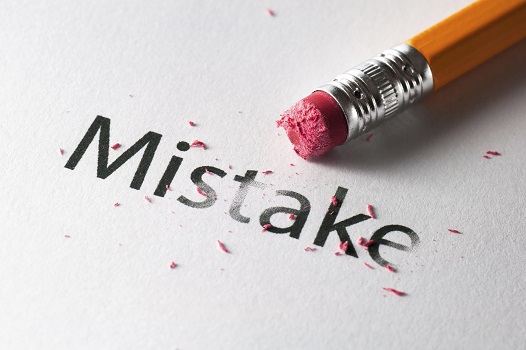Booking celebrities or influencers is often seen as a golden ticket to business success. Though celebrity and influencer marketing can certainly help push a brand to new levels of achievement, many smaller brands have experienced major setbacks when their celebrity marketing campaigns haven’t yielded the expected results. We here at Booking Agent Info recently sat down to talk with Evan Morgenstein, who owns four companies in the celebrity and influencer marketing industry. Morgenstein shares some profound insights into how startups and small to medium-sized companies can best position themselves to truly take advantage of the influence that celebrities offer.
Who is Evan Morgenstein?
Morgenstein is a serial entrepreneur who currently owns four companies in the celebrity, influencer, and marketing space: CelebExperts, Celebrity Speakers Bureau, The Digital Renegades/The Food Renegades, and the Celebrity Chef Network. Through these companies, Morgenstein and his team focus on booking celebrity talent. With his agency Digital Renegades/The Food Renegades he represents talent exclusively. Through his other agency Celeb Experts, he works as a middle agent to offer his services to corporations and businesses that want to hire other people’s talent.
The clients he represents exclusively include Jen Selter and Perez Hilton as well as some of the biggest creators on social media in the food space, nutrition, and others. From individual social media posts to negotiating equity in a company as part of a celebrity marketing contract, Morgenstein has a wealth of experience in the world of celebrity marketing and booking.
Morgenstein’s Advice for Contacting a Celebrity Representative
So let’s start from the beginning. Let’s say that you are the owner of a brand and are looking to work with a major celebrity like Jen Selter or Perez Hilton. What are your first steps? Once you have decided to contact a talent agency or a celebrity representative what exactly should be in that initial email that you send?
When it comes to buying celebrity and influencer talent, Morgenstein says that you should never start the conversation by asking the agent or manager you are able to get in contact with the final price tag. Morgenstein says:
Never say these following words: How much? If you say the words “how much”, then everybody knows you’re like a bird in a nest and mom’s gone away, and you’re going to get eaten by a squirrel or something. So never ask how much because that’s the worst way to buy talent because everybody knows you don’t know. And when you don’t know, they’re going to make it up. And when they make it up, you know, you’re going to spend way too much money, and it’s not going to work.

Instead of simply hoping that the celebrity or influencer you are contacting will be willing to do a deal for your limited budget, you need to start by knowing exactly what your marketing campaign looks like. This process begins by determining precisely what you need from the talent you are looking to hire.
If there are store appearances, if you need social media, if you need a shoot day to take content so you can put that out on your own social media on your website, you know, all these things, whatever it is, whatever, it’s called scope of work. So, you have to know what your scope of work is. You also have to know what your marketing campaign is and how’s this person going to overlay into the marketing campaign. You need to know if your digital ad agency or your in-house digital ad buyers are going to need content to A/B test to see if you’re getting the best results of shooting Kate Hudson outside doing something active or inside with her kids, which one’s going to produce better results if you’re buying ads on Facebook.

Once you have done all the detailed preparations for the marketing plan, and this of course includes the necessary budgeting, you are going to have a firm idea of what type of celebrities or influencers fit the marketing proposal you have developed. If you have a budget of $100,000, for example, you need to realistically understand that you’re never going to be able to hire an A-list celebrity like Kate Hudson. “You have to have the parameter of reality associated with whatever you’re looking to do in terms of buying talent,” Morgenstein recommends.
Another question that brands often struggle with when initially contacting a celebrity agent or is whether or not they should initially propose a budget. In some cases, this might seem like an invitation to “overbid” and thus spend more than what you need to do. In other cases, you might be offering a low-ball bid that could come off as offensive to the agent. Morgenstein advises the following:
If it’s less than $25,000, no; if it’s more than $25,000 or if it’s $25,000 to $100,000 and it’s a like C/B-level celebrity, yes. But if it’s an A celebrity, no. And if it’s over $100,000, and you’re interested in an A-level celebrity, sure, at least you’re going to get somebody that’s going to say, oh, well, you know. But if you want Jennifer Aniston, say I have $100,000, you’re never going to get a call back. You’re just not going to get a callback because it’s just unreal. You know, you have to have a sense of the market.
Morgenstein also shared with us his number one personal vexation when it comes to brands who hire him to help them contact and hire celebrity and influencer talent:
If you’ve already talked to me and anybody in your organization DMs one of my clients [directly], we are never working together. Because I feel like you’re trying to go around my back. It questions the validity of my relationship…If you are going directly to them, it’s because you are trying to get a better deal, you want them to do an affiliate deal, but I won’t do it…(These potential clients of mine) are not great at the business side, which is why they hire me. If you do not respect my business acumen, we are done.

Advice for Startups
Morgenstein also offered several pieces of valuable advice for startups and smaller companies who believe that hiring celebrity talent or major influencers might be the best marketing strategy to help them reach their goals. While it is understandable that most startups are likely not going to know how to gauge the price of celebrity and influencer talent, Morgenstein offers a few tips to avoid simply throwing out a number that you pick out of thin air.
- Firstly, he says that brands need to know their audience and avoid the temptation to dream big. “You have to be very clear on what you’re trying to ascertain,” he says. “You can have Champaign and caviar dreams, but at the end of the day, if that’s not your audience, what are you doing?”
- Secondly, you need to develop a clear and concise marketing strategy. Morgenstein believes that when you have a marketing strategy, you need to figure out what your marketing budget is. “It could be a percentage of sales if you’re already on the market, it could be a percentage of the revenue that you’ve already brought in through friends and family or investors. You have to make that decision,” he says. This of course depends on your company’s liquidity, the current and projected future marketplace conditions, and your competitors.
- You also need to budget more than just for the cost of hiring the celebrity or influencer. “If you are going to go after a celebrity, you need to spend anywhere from two to three times the cost of the celebrity to leverage the celebrity in order to get any kind of bang out of it,” Morgenstein instructs. Too many small companies mistakenly believe that if they could just get a celebrity or a big influencer to support their brand then everything else would fall into place. Instead of making this errant assumption, Morgenstein encourages brands to have a sufficient budget in place to do everything you can to leverage the celebrity marketing you’re paying for.

Lastly, Morgenstein encourages brands to also do the grunt work that makes any marketing campaign successful. “Brands have to research, they have to build a network, they have to go on webinars, talk to people, get a sense for things, and then realize that the one thing you have to have in this business to be a really good entrepreneur is to mitigate fear and overcome your obstacles. And if you can do those things in unison, then you have a chance,” he says.
Working with Celebritys Agent vs Middle Agent
So you’ve done your research, you’ve developed a solid marketing plan, and you have a budget in place that will (hopefully) allow you to hire a celebrity or major influencer while still having enough money to utilize that celebrity talent to drive your business growth goals. The next major decision you need to make is whether you should try to reach out directly to a celebrity agent, or outsource that task to a middle agency.
Thus, it is certainly possible to reach out directly to celebrity agents and representatives to try and negotiate a deal. The problem from Morgenstein’s perspective is that most smaller companies most likely do not have a clear sense of who they are dealing with when they reach out directly to the celebrity representative. He says:
You have to make a decision on is it going to be easier to work with somebody that’s going to be able to help you out through the process and educate you, or are you going to just call (a certain celebrity’s) agent? The possibility is that they’re not going to be interested because you really don’t know what to say or what to ask. And therefore, there’s a reason you go to someone like me as an outsourcer because I’m going to ask the right questions, I have worked with (the celebrity) in the past, we have booked him in the past. So, you’re more likely to get a positive outcome if he’s available working with somebody that’s worked with a talent agent, manager, or booking agent, than if you are a nobody.
Alternative Options to Cash when Hiring Celebrity Talent
In most cases, hiring celebrity talent for a marketing campaign, an appearance at a live event, or any other type of promotional event is going to cost a decent amount of money. The problem, of course, is that many startups, smaller companies, non-profit organizations, and others may not have a sizeable budget to offer the celebrity or influencer. Whereas non-profit organizations might be able to frame their proposal to a celebrity who shares a belief in the cause that the organization supports, companies and brands might also consider offering equity to the celebrity in lieu of direct cash payment. Morgenstein says:
I’ve done deals recently where the client, in lieu of a significant monthly payout, has taken equity in the company. So, you know, taking equity in a company may be attractive to the right celebrity or the right influencer. A lot of people are interested in that because they use equity as currency. And there’s some people like no, it’s just me and my wife, it’s just me and my partner, and they’re not sharing equity with anybody. Well, that makes it a little bit more challenging because, you know, those are companies that are going to now have to pay cash or they’re not going to get what they’re looking for.

So what type of brand might consider offering equity as a form of payment to a celebrity or major influencer? From Morgenstein´s perspective:
A lot of it depends on realistically whether somebody believes the company is going to make it…If an agent, manager, publicist, or talent doesn’t believe the company’s got real upside opportunity, they’re probably not going to cut them any slack. They just want to get paid, they just want to be in and out, take a shower and be done with it. You know what I’m saying? But if they really believe that this has some significant potential, they may be willing to cut them some slack because they are looking to do something with them long-term.
When offering equity as part of a deal with a celebrity or influencer, Morgenstein encourages brands to first ask the following questions:
- What is the valuation of the company?
- What are your sales?
- Have you taken on any other investments in the recent past?
- At what dollar amounts?
The answers to these questions will determine what the value of the shares are. Morgenstein also says that he tends to look at whether or not the proprietor or the business owner has had any successes with rolling up companies previously.
That is really the number one thing for me. If you are a first-time entrepreneur and you’ve never had success selling a company, then unless it’s a product that blows me away…I probably won’t encourage my client to do the deal because you are going to go through the learning process with someone who had no idea what they are doing.

For many smaller companies and startup brands, the idea of contacting a celebrity or major influencer might seem like a shot in the dark. However, the practical advice offered by Morgenstein above should help any company or organization take the necessary steps to ensure that hiring celebrity talent is beneficial for all parties involved.



